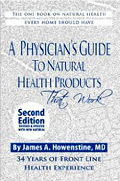THE TOP 10 HEALTH STORIES OF 2012
By
Byron J. Richards, CCN
January 8, 2013
NewsWithViews.com
2012 is another in a string of years that shows the power of nutrition to positively influence your genes to support and improve health. On a strikingly diametric trajectory is the adverse impact of virtually every drug in common use, slowly and surely eroding away the health of a population.
#10 – The Promise of Drug Based Big Pharma Health Care Continues to Slide
2012 proved to be another disturbing year for commonly used drugs. The true nature of their side effects and lack of results continues to erode the gargantuan taxpayer funded marketing machine of Big Pharma. The industry continues to receive mafia-like price protection and benefits from the dysfunctional Congress and FDA, a system of health that perpetuates a glaring lack of results and ever-mounting evidence of actual harm.
Some of the lowlights this year include the cholesterol lowering statin drugs that cause fatigue and inability to exercise. People who think fatigue and progressive lack of fitness caused by a drug will somehow make them healthier and live longer are gravely mistaken. Indeed, the evidence continues to pile up that statin drugs cause type 2 diabetes. For example, the popular Z-Pak antibiotic was found to be deadly to people instead of germs, SSRI antidepressants were shown to do more harm than good, and the FDA concluded that widely prescribed bone drugs did not prevent fractures over the long term. Perhaps Big Pharma should try predicting the weather.
1-
Statin
Drugs Cause Fatigue and Inability to Exercise
2- Statins
Cause Type 2 Diabetes
3- The
Z-Pak Antibiotic Can Kill Adults
4- Researchers
Conclude SSRI Antidepressants Do More Harm than Good
5- FDA
Review: Long-term Use of Bone Drugs Does Not Prevent Fractures
#9 – The USDA Takes Claim for the Blueberry
This is one of those rare examples where the government has indeed helped the health and well-being of all Americans. Our United States Department of Agriculture would like you to know that it is due to their efforts over the past 100 years that blueberries have powerful health benefits, and are in plentiful supply . Not only have they taken steps to ensure that blueberries became a food staple in America, but they have also been at the forefront of using advanced science to demonstrate the health benefits of blueberries.
Ironically, their message is much different than another government agency, the FDA. The FDA wants you to know nothing about how nutrition can prevent or treat disease, preferring that all such science be hidden from the public while only their approved drugs can make such claims. On the other hand, research shows that blueberries can lower cholesterol, and unlike statins, actually prevent type 2 diabetes at the same time. The best USDA research shows how blueberries can preserve your brain and prevent cognitive decline.
1-
The
USDA Touts its Hundred Year Blueberry History for Your Brain Health
2- How
Blueberries Lower Cholesterol
3- Blueberries
and Strawberries Reduce the Rate of Brain Aging
4- Blueberries
Help Prevent Type 2 Diabetes
5- Berries
are a Brain Super Food
#8 – D-Limonene Arrives on the Breast Cancer Prevention Scene
D-Limonene, an oil nutrient called a terpene, is an amazing natural compound found in lemon and orange peels. It has potent antioxidant and anti-inflammatory properties, offers assistance for a variety of metabolic and health problems, and has especially drawn notice for its potential as an anti-breast cancer nutrient.
All plants synthesize terpenes. They are used by the plant as a natural defense against insects and environmental stress, and to repair injuries and wounds. People naturally ingest a wide variety of terpenes, which are essential for good health. For example, all carotenes are terpenes. Since d-Limonene is a fat-soluble nutrient it accumulates in fatty tissue, including breast tissue. Once there, it has a potent protective role.
1- D-Limonene: Help for Digestion, Metabolism, Detoxification, Anxiety & Breast Cancer Prevention
#7 – The Rise of Whey Protein as a Metabolic Superfood
All calories are not created equal. It turns out that whey protein is far more than a method to boost the intake of your daily grams of protein. Loaded with bioactive components that are now being evaluated by the new gene science, whey protein is proving that it can help with many of today’s metabolic problems.
Human studies demonstrate its precise mechanisms of operation and value to human health, which include boosting metabolic rate, improving insulin production and efficiency, reducing excess appetite, helping fatty liver, lowering cholesterol, and improving muscle fitness.
1-
How
Whey Protein Helps Weight Loss & Type 2 Diabetes
2- Whey
Protein Improves Fatty Liver and Lowers Cholesterol
3- How
Protein Helps Weight Loss
4- Whey
Protein Boosts Muscle in Elderly Men
#6 – The Natural Approach to Improving Atrial Fibrillation
Many individuals are now searching for alternatives to common health problems, seeking to actually fix a problem and truly improve function. One such issue is atrial fibrillation, the most common form of irregular heartbeat.
The purpose of nutrition is not to directly replace drugs, but rather, to improve health so that problems are better managed or preferably go away. If you can get yourself healthier over time then you can work with your doctor to determine whether or not medications are needed at all, or possibly in a lower dose.
1- How to Improve Atrial Fibrillation
#5 – Hepcidin Alters Our View of Iron and Health
Hepcidin is a hormone made in your liver in response to inflammation. As its levels go up, the absorption of iron goes down. This may well be one of the most important points to your metabolic health, yet almost no person understands the subject or its implications.
It is central to the metabolic problems of an overweight population struggling with every symptom of hypothyroid and “normal” thyroid lab tests. The problem was created in part by the medical profession’s overuse of antibiotics, causing Candida overgrowth in millions of Americans. If you struggle with energy you need to understand this issue.
1- Stunning Discoveries Regarding Iron, Obesity, Candida & Thyroid
#4 – Improving Male Sexual Function
The blue pill and its family of friends made an impact on problems with male health that millions of men struggle to overcome. Yet, the pills are not without risks. If the pill is truly needed it tends to reflect underlying circulatory issues that warrant fixing. I explain the details of this issue in the following article, as well as the natural steps you can take to get yourself in better working condition.
1- Natural Supplements for Male Sexual Performance
#3 – Q10 for Heart and Metabolic Health
Q10 has always been a popular nutrient for cardiovascular health. In 2012, Q10 cardio research picked up, propelling Q10 into the limelight. New research on the highly active form of Q10 known as ubiquinol was especially interesting. In human studies, this form was found to lower cholesterol and reduce cardiovascular inflammation. It was even found to help improve the function of the pancreas in patients with type 2 diabetes, offering support for two problems that frequently occur together as health declines. Impressively, ubiquinol Q10 was shown specifically to reduce damage to DNA, a potent anti-aging benefit.
1-
Low
Levels of Ubiquinol Q10 Linked to Cardiovascular Inflammation
2- Ubiquinol
Q10 Helps Patients with Type 2 Diabetes
3- Q10
Demonstrates Powerful Protection for Your Circulatory System
4- Coenzyme
Q10’s Powerful New Role in Cardiovascular Health
#2 – Jogging Extends Life by Six Years
One way to get your genes in better working condition is to turn on their healthy switches. This can not only be done with nutrition but also with physical activity. Jogging has a major impact on conditioning health in your body. For teens, who may not be too concerned about the aging issue, it makes them smarter. Science shows jogging is a great way to help build your brain as well as manage your food cravings. Not surprisingly, the number of hours sitting in a chair each day is still a top killer. There is no doubt about it from an evolutionary perspective, we were born to run.
1-
Jogging
Demonstrates Remarkable Lifespan Extension
2- Aerobic
Fitness Makes Teens Smarter
3- Synaptic
Plasticity – The Key to Your Brain’s Future
4- Morning
Exercise Reduces Daytime Food Cravings
5- Sitting
is Still a Top Killer
6- Byron’s
Running Tips
#1 – Vitamin D Does it All
Vitamin D is the poster child for a gene-regulating nutrient. It exerts its influence by interacting with the vitamin D receptor, in turn influencing how your genes express themselves. While a great deal of vitamin D research focused on calcium and bone metabolism, our new understanding and ability to evaluate genes shows that vitamin D gene influences impact a diverse range of health topics. These include immunity, cancer, cardiovascular health, body weight, diabetes, balance and coordination, cognitive decline, and even your thyroid.
| Subscribe to the NewsWithViews Daily News Alerts! |
Furthermore, getting vitamin D to an optimal level for disease prevention requires relatively higher doses than many people consume. A very small percentage of Americans have optimal vitamin D, while a very large percentage of Americans low in vitamin D have the diseases it helps prevent. Public health officials and the FDA are missing in action on a topic of true public health concern – especially when many of their health proclamations are to stay out of the sun and apply sunscreen, which actually help cause vitamin D deficiency.
1-
Low
Vitamin D Increases Odds of Breast Cancer Spreading by 800 Percent
2- Calcium
and Vitamin D Reduce the Risk for Breast and Colon Cancer
3- Calcium
and Vitamin D for Fat Burning
4- Low
Vitamin D Leads to a Fat Stomach, High Blood Sugar & Low HDL
5- Low
Vitamin D Associated with Falls and Loss of Mobility in Elderly
6- Low
Vitamin D Increases the Risk for Alzheimer’s
7- Vitamin
D Helps Prevent Clogged Arteries
8- Vitamin
D Deficiency Linked to Cardiovascular Disease
9- High
Vitamin D Levels Protect Against Type 2 Diabetes
10- Vitamin
D Reduces the Risk for Type 1 Diabetes
11- Thyroid
Problems, Vitamin D, and Blood Pressure
12- Scientists
Recommend 4,000 IU – 8,000 IU of Vitamin D Per Day
� 2013 Wellness Resources, Inc. - All Rights Reserved












 Share
This Article
Share
This Article






